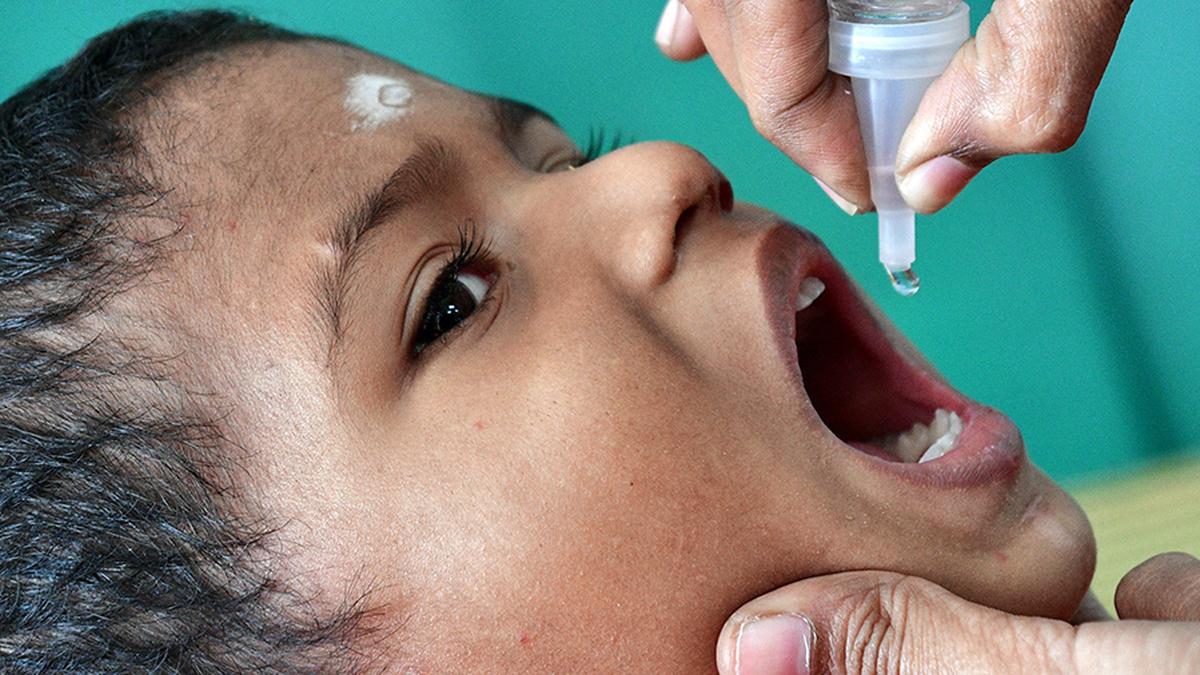
A global polio resurgence and the need to reevaluate the basics
The Hindu
Eternal vigilance needed to prevent resurgence of polio worldwide, with debate on vaccine efficacy and transmission routes.
The gains of science can easily be frittered away, much faster than they were earned. Eternal vigilance is the price we pay to inhabit a planet like Earth, with the range of biodiversity it has. Any letup, and it’s quite likely that years of achievement might be undone. As in the case of polio, which is seeing a resurgence worldwide, with environmental samples and human cases throwing up both wild polio virus as well as vaccine-derived polio virus.
The World Health Organization (WHO) has reported that poliovirus had been detected through routine surveillance of wastewater systems in five countries in the WHO European Region (Finland, Germany, Poland, Spain, and the United Kingdom) since September this year. “While no cases have been detected to date, the presence of the virus underscores the importance of vaccination and surveillance, as well as the ongoing risk that any form of poliovirus poses to all countries everywhere,” the WHO says.
In Pakistan, four WPV1 cases and eight WPV1-positive environmental samples were lifted. In Cameroon and Cote D’Ivoire, one case each of cVDPV2 was detected, while in Chad and Nigeria, four and three cases of cVDPV2 were detected recently, according to the WHO. Additionally, positive environmental samples were found in Finland, Germany, and the United Kingdom.
In the past 3 months, circulating vaccine-derived poliovirus type 2 (VDPV2) was detected in sewage samples in Barcelona, Spain; Warsaw, Poland; Cologne, Bonn, Dresden, Duesseldorf, Mainz, Hamburg, and Munich in Germany; Tampere in Finland; and Leeds, London, and Worthing in the U.K., according to the WHO. The detected virus was genetically linked to a strain that emerged in Nigeria. In none of the five countries was there confirmed local circulation of the virus at this time, the health body said.
“WHO continues to support national and local public health authorities in their investigations and monitoring of the situation, including identification of any potential subnational immunity gaps that may need to be addressed,” added Robb Butler, Director, Communicable Diseases, Environment and Health at WHO/Europe. “Vaccination of every vulnerable child is essential to ensure that the virus cannot lead to lifelong paralysis or even death.”
All five countries where the virus was detected maintained strong disease surveillance and high levels of routine immunisation coverage, estimated at 85–95% nationally with 3 doses of inactivated polio vaccine (IPV), which provides excellent protection from paralysis caused by poliovirus. Earlier, polio was also picked up in Gaza on July 16, 2024. It was confirmed in a 10-month-old child who became paralysed in August 2024.
However, pockets of undervaccination exist in every country. In response to the detections, investigations are ongoing, including through continued disease surveillance. Subnational immunity levels have been examined to identify any potential gaps and immunisation of unvaccinated children, the WHO says.





















 Run 3 Space | Play Space Running Game
Run 3 Space | Play Space Running Game Traffic Jam 3D | Online Racing Game
Traffic Jam 3D | Online Racing Game Duck Hunt | Play Old Classic Game
Duck Hunt | Play Old Classic Game











